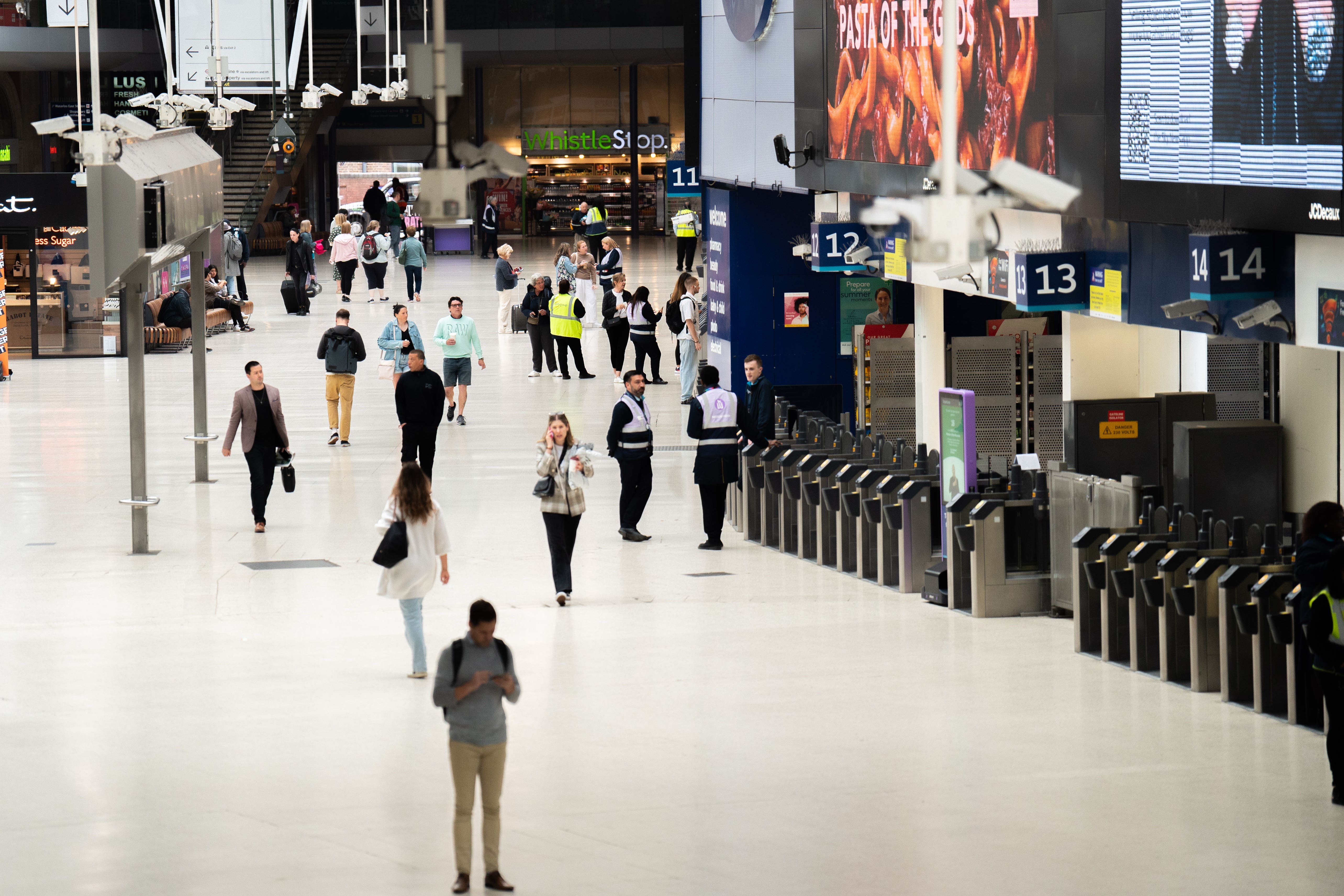Industrial action on railways cost sector £620 million in past year – figures
The Rail Delivery Group said the strikes threatened the industry’s ‘long-term sustainability’.

Your support helps us to tell the story
From reproductive rights to climate change to Big Tech, The Independent is on the ground when the story is developing. Whether it's investigating the financials of Elon Musk's pro-Trump PAC or producing our latest documentary, 'The A Word', which shines a light on the American women fighting for reproductive rights, we know how important it is to parse out the facts from the messaging.
At such a critical moment in US history, we need reporters on the ground. Your donation allows us to keep sending journalists to speak to both sides of the story.
The Independent is trusted by Americans across the entire political spectrum. And unlike many other quality news outlets, we choose not to lock Americans out of our reporting and analysis with paywalls. We believe quality journalism should be available to everyone, paid for by those who can afford it.
Your support makes all the difference.Industrial action on the railways has cost the industry around £620 million over the past year, new figures suggest, as passengers suffered fresh travel misery because of a strike.
Members of the Rail, Maritime and Transport (RMT) union staged a walkout on Thursday in their long-running dispute over pay, jobs and conditions.
Further strikes will be held on Saturday and on July 29, while services were also being disrupted because of a ban on overtime by train drivers in the Aslef union.
The Rail Delivery Group (RDG) said that since the first RMT strike in June 2022, industrial action had cost the sector around £620 million.
A statement said: “This has stalled its post-pandemic recovery and threatens its long-term sustainability, pushing the industry in to a spiral decline and risking consequences like cuts to services to make up the shortfall. Revenue levels are still 30% below pre-pandemic levels.
“The strikes have hit the wider economy – particularly sectors still recovering from the impact of the pandemic which employ hundreds of thousands of people.
“Analysis by Hospitality UK shows that with the upcoming rail strikes set to cost hospitality £132 million in sales, the cumulative impact of the rail strikes is £3.25 billion.
“The Night Time Industries Association said their members took a 40% hit on strike days at a time when nearly three-quarters of their members are either just breaking even or losing money due to the wider cost-of-living crisis.”
Thursday’s strike at 14 train companies saw wide variations of services across the country, with trains starting later and finishing much earlier than usual.
In some areas, around half of train services ran while others had no services at all.
Evening services on some lines were likely to be affected on the days before each strike and on the mornings following the action.
A RDG spokesperson said: ”The rail strikes called by the RMT union and the overtime ban by Aslef will undoubtedly cause some disruption, affecting not only the daily commute of our passengers but also disrupting the plans of families during the summer holidays.
“This will lead to disappointment, frustration, and financial strain for tens of thousands of people. We apologise for the inconvenience caused and understand the impact on individuals and businesses.
“While we are doing all we can to keep trains running, unfortunately there will be reduced services between Monday July 17 and Saturday July 29, so our advice is to check before you travel.”
Picket lines were mounted outside railway stations across England and workers said they were receiving strong support for their action from the public.
RMT general secretary Mick Lynch said striking rail workers were still waiting for an invitation back to the negotiating table.
“We’ve been on strike for over a year, this campaign’s probably been running for two years,” Mr Lynch said from a picket line at Euston station in London.
“The issues are the same. They’re attacking our jobs. They’re making redundancies. They’re closing services.
“We haven’t had a pay rise for four years and the people that remain, they want to cut our conditions and issue new contracts of employment.
The Government has met the rail unions, listened to them and facilitated improved offers on pay and reform. The union leaders should put these fair and reasonable offers to their members so this dispute can be resolved
“There is not an agreement in sight at the moment but we remain available for negotiation with the companies and with the Government, but that’s up to them to invite us back to the table so that we can work up some solutions to the dispute.”
A Department for Transport spokesperson said: “The Government has met the rail unions, listened to them and facilitated improved offers on pay and reform. The union leaders should put these fair and reasonable offers to their members so this dispute can be resolved.”
– Passengers were also warned to expect disruption to London Underground services next week because of industrial action by the RMT and Aslef in a separate dispute over jobs, pensions and conditions.